Within 10 seconds my son went from happy and content to a fiery ball of rage. This was his first 1 year-old tantrum, and I remember thinking, “We can’t be into tantrums yet, can we?!”
All I did was remove his food from the tray so he would stop throwing it on the floor. The back arching, kicking and screaming started immediately as he revolted against the chair, proving to me that I was definitely in for some hard parenting work.
Then, tantrums started to happen while he was eating, during diaper (nappy) changes, and at nap time. One time it was so out of control that he started hitting his head against the floor.

This can send you straight into fight or flight mode as a parent, and it’s beyond stressful.
On one hand you feel helpless and want to do whatever you can to stop the tantum. And on the other hand, you don’t want to give into wild demands and let your 1 year-old walk all over you.
Here’s the inside scoop on 1 year-old tantrums.
In a short period of time, I devoured information on helping him calm down. Within a month, the tantrums went from several per day to only few per week. I’ve also used these strategies to help hundreds of parents I work with inside my Raising Little Listeners eCourse.
Let’s dig into several key strategies to help calm your child down in minutes, stop future tantrums, and prevent a tantrum from escalating to out of control.
On This Page…
Are a 1 year-old tantrums normal?
All kids have three basic needs: Experience, power and connection. Depending on the situation, your child is trying to meet any one of these needs through a tantrum.
Usually, the deep underlying need is connection (communicating with you through crying) and the secondary need is power (feeling powerless to get what they want, so children cry and make loud noises).
Since all kids will continue to communicate until they feel heard and understood, it makes perfect sense that a 1 year-old would resort to tears in order to get their point across.

They aren’t mature enough to say, “You know, I was having a really fun time throwing food on the floor and learning about that experience. Can I please do that again?” Instead, the child will scream and get louder and louder when you dive into reasons and explain why they cannot have the food back.
So yes, it’s perfectly normal and developmentally expected that a 1 year-old will have some tantrums. Now, it’s only a matter of helping the child feel understood (so they open up to your guidance) and helping the child meet their own needs in a way that you are OK with (aka how to stop the screaming tantrum).
More on those strategies to stop a tantrum at the end of this post.
Why does my 1 year-old have tantrums?
From a developmental standpoint, 1 year-olds are operating almost completely in the emotional brain. Everything your child does is based on emotion – this looks like fun, this makes me happy, I have this body and what can I do with it, I’m scared, I’m sad, etc.
“A child’s brain undergoes an amazing period of development from birth to three—producing more than a million neural connections each second.The development of the brain is influenced by many factors, including a child’s relationships, experiences and environment.” (source)
For a 1 year-old to go from completely calm to upset and screaming like a fog horn is actually very common because the brain is developing so fast.
It’s like the brain circuits are growing at the speed of light and the poor child’s brain processing center is just trying to make sense of it all. Literally, the processing center gets backed up like the line outside Kohl’s on Black Friday.
That’s why diving into reasons or explanations with small children never works. The line at the brain processing center is so long, you’re like the gal at the back of a 1,000 person line saying, “Open the doors. Move faster.” And literally no one can hear you.
How to stop a 1 year-old tantrum in minutes?
There are three powerful strategies to try when your child is having an emotionally intense moment (these ideas all come from Language of Listening® – the 3-part framework I use and teach to parents).
1. Start with “You want…”
Everything children do and say is a communication, and children must continue to communicate until they are heard. So when a child is screaming about something, go straight into saying what they want.
“You want to keep playing.”
“Food is fun for you! You want to keep throwing food.”
“You want to put the shoe in your mouth.”
When you get the communication right, the child will be able to relax and stop incessantly communicating with you through screaming. If you try this and your child keeps screaming, it’s likely that there is more to the communication from your child.
Keep working through what the child wants. Remember matching the intensity can help stop the temper tantrum by to conveying authenticity. It helps your child know that you really get it.
2. Help the child meet their need in a way you are OK with.
All behaviors are driven by three healthy needs: experience, connection, power. Whatever children are doing is already meeting these needs.
When a child is screaming, they are meeting their needs. It’s just not meeting the need in a way you like very much. Once you’ve connected with the child about what they want (i.e saying, “You wanted…”), the child is now ready to hear your guidance. You can now help your child meet their need in a way you are OK with.

This is the CAN DO part of Language of Listening. It might sound something like this…
“You want to throw the food AND I’m not okay with that. You can play with this soft toy instead, and you can even throw it on the floor. That would work for me.”
“The blocks are your favorite! You want to keep playing AND it’s time to leave. Must be something you can do. You can take the toys with you in the car while we ride.”
“You want to put the shoe in your mouth AND I’m not okay with that. Must be something you can do. You can chew on this or this.”
This allows you to honor your boundaries while still allowing the child to meet their own healthy needs, and everyone wins.
3. When the child is calm be sure to point it out.
All children have every possible inner strength. Children act according to who they believe they are. When your 1 year old is throwing a tantrum and then they calm themselves down, be sure to point that out.
“You calmed yourself.”
“You found something else to put in your mouth. That works!”
“You’re playing calmly!”
This helps even the youngest of children see that they have the ability to calm themselves down and problem-solve.
Here’s the best part:
Your child’s future actions are based out of these STRENGTHs. When a child can see a trait in themselves, they will start to show you more of it.
Instead of thinking, “All I ever do is cry all the time,” the child can see they are capable of calming themselves, and their inner voice will say, “Oh yeah, look at that, I did calm myself down. I’ll have to try that again!”
Say goodbye to the fiery ball of rage revolting against nap time or the high chair or the nappy change. Say hello to a child who is calmer, more content and understood.
Print this free toddler listening checklist.
This post comes with a free printable checklist to help with toddler listening. I always have the hardest time remembering these phrases. This printable simplifies it!
Here is a sneak preview…
Download Your Free Printable
- Download the checklist. You’ll get the printable, plus join 37,000+ parents who receive my weekly parenting tips and ideas!
- Print. Any paper will do the trick, but card stock
would be ideal.
- Place it on your refrigerator. Check things off as you go and don’t forget a thing!
Want more on parenting?
- How to Deal With Toddler Tantrums and Stay Sane
- The Toddler Sleep Schedule That Helps Everyone Get More Sleep
- The Most Overlooked Reason Why Kids Won’t Listen
- A Quick and Easy Toddler Nap and Bedtime Routine That Works Like a Charm
- 10 Empowering Ways to Improve Toddler Listening
I've created a free email series just for you! If you are struggling with teaching your child to listen, this series will help transform your parenting. Yes, really. I've seen my proven strategies work time and time again for parents. I know it can work for you too.
After taking my free email series, you will:
- Learn simple, yet highly effective listening strategies
- Experience a stronger connection with your child
- Enjoy more peaceful parenting days
- Gain more cooperation from your child

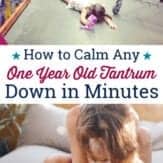
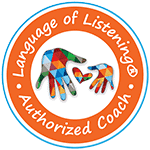
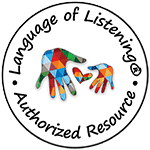
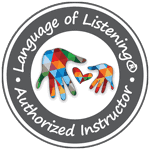
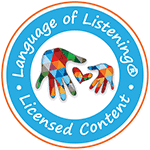








Hi my 13months old wants everything and if u take it away he screams and cry starts banging the door hitting things around him how do I stop and calm him please help
This doesn’t help, unfortunately a 1 year old cant talk, let alone listen for even a minute, they are mostly physically demanding and emotionally communicating like you said. Making statements aren’t going to help a 1 year if they have no idea what your saying.
agree! not helpful at all for 1 year old
Thank you! I am going to try this (Especially step 3) first thing tomorrow. My 12 month old does understand a lot more words than she can speak. She follows simple commands like “throw that in the trash please, or go get (specific) toy, or give that to daddy etc…”
Her tantrums have been mostly when I won’t/can’t pick her up. I don’t know if I should be carrying her more often or put my foot down . I don’t know how it will work out with the step 2 because she wants my attention and to see what I am doing. So nothing really to compromise than a quick “see this is what mommy is cutting up not it’s time to go down…”
My 15 month old has tantrums everyday.